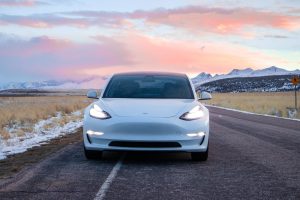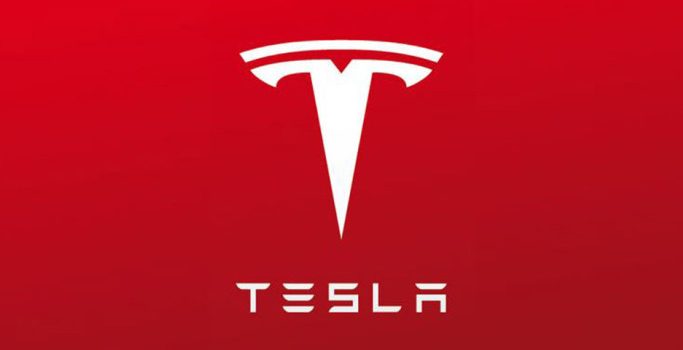
In a landmark decision, shareholders of Tesla Inc. have given a resounding vote of confidence to CEO Elon Musk following a Delaware court ruling that nullified his 2018 compensation package. This development has significant implications for corporate governance, executive compensation, and the electric vehicle industry. In this article, we will delve into the context and ramifications of this decision, providing detailed analysis and comparative insights.
Background: The 2018 Compensation Package

In 2018, Tesla’s board approved a highly ambitious compensation package for Elon Musk. The package, valued at approximately $2.6 billion, was contingent upon the achievement of a series of aggressive performance milestones related to Tesla’s market capitalization and operational goals. The package was designed to incentivize Musk to focus on long-term growth and shareholder value.
Key Components of the 2018 Package
- Performance Milestones: The compensation plan was divided into 12 tranches, each tied to specific milestones in market capitalization and revenue or profitability targets.
- Equity-Based Compensation: Each milestone triggered the vesting of stock options, allowing Musk to purchase shares at a predetermined price, thus aligning his interests with those of shareholders.
- Long-Term Focus: The structure aimed to drive long-term success rather than short-term gains.
The Delaware Court Ruling
In early 2024, a Delaware court struck down the 2018 compensation package, citing concerns over the board’s approval process and potential conflicts of interest. The court highlighted that the board might not have exercised adequate oversight and that the package was potentially excessive.
Key Points of the Ruling
- Approval Process: The court questioned whether the board had thoroughly scrutinized the compensation package and its implications.
- Conflict of Interest: Concerns were raised about the involvement of board members with close ties to Musk, which could have influenced their judgment.
- Excessiveness: The ruling emphasized that the magnitude of the package might not have been justifiable based on Tesla’s financial condition at the time.
Shareholders’ Vote of Confidence
Despite the court ruling, Tesla’s shareholders overwhelmingly voted to support Musk, reaffirming their trust in his leadership. This vote is significant, as it underscores the strong alignment between Musk’s vision for the company and the shareholders’ expectations.
Analysis of the Shareholders’ Decision
- Faith in Leadership: The vote reflects a deep-seated belief in Musk’s ability to steer Tesla towards continued growth and innovation.
- Acknowledgment of Achievements: Shareholders recognize the milestones Tesla has achieved under Musk’s leadership, including becoming the most valuable automaker in the world and leading the transition to sustainable energy.
- Support for Vision: The shareholders’ decision underscores their support for Musk’s long-term vision for Tesla, including advancements in autonomous driving, energy solutions, and space exploration through SpaceX.
Comparative Analysis of Executive Compensation
To understand the broader context of executive compensation, it is essential to compare Musk’s package with those of other industry leaders. This comparative analysis sheds light on trends, justifications, and outcomes of high-stakes compensation packages.
| Executive | Company | Compensation Package | Performance Metrics | Outcome |
|---|---|---|---|---|
| Elon Musk | Tesla | $2.6 billion (2018) | Market cap milestones, revenue/profitability targets | Achieved multiple milestones, significant stock appreciation |
| Tim Cook | Apple | $378 million (2011) | Stock performance, revenue growth, operational efficiency | Apple became the first trillion-dollar company |
| Sundar Pichai | Alphabet | $240 million (2019) | Stock performance, innovation targets | Continued dominance in search, growth in cloud services |
| Satya Nadella | Microsoft | $250 million (2014) | Cloud services growth, stock performance | Transformed Microsoft into a cloud leader, stock surged |
| Jeff Bezos | Amazon | No salary, stock-based | Market cap growth, revenue growth, operational expansion | Amazon became a trillion-dollar company, expanded globally |
Implications for Corporate Governance
The Delaware court ruling and subsequent shareholder vote have profound implications for corporate governance. These events highlight the critical balance between incentivizing top executives and ensuring responsible oversight.
Lessons Learned
- Board Oversight: Boards must exercise rigorous oversight when approving executive compensation to avoid conflicts of interest and ensure packages align with shareholder interests.
- Shareholder Engagement: Active engagement with shareholders is crucial in maintaining trust and transparency in corporate governance.
- Performance Metrics: Compensation packages should be tied to clear, achievable performance metrics that drive long-term value creation.
The Future of Tesla and Executive Compensation
Tesla’s trajectory under Musk’s leadership continues to be a subject of intense scrutiny and interest. As the company pioneers advancements in electric vehicles, energy storage, and AI, the dynamics of its executive compensation will remain a focal point.
Predictions and Considerations
- Innovation and Growth: Tesla’s focus on innovation and expanding its product line will likely continue to drive its market valuation and influence executive compensation strategies.
- Regulatory Scrutiny: Increased regulatory scrutiny on executive compensation could lead to more stringent governance standards and transparency requirements.
- Shareholder Activism: The role of shareholder activism in shaping corporate governance and executive compensation practices is expected to grow, emphasizing accountability and sustainability.
Analysis Table: Key Aspects of the 2018 Compensation Package
| Aspect | Details |
|---|---|
| Performance Milestones | 12 tranches based on market cap, revenue, and profitability |
| Equity-Based Compensation | Stock options vesting upon achieving milestones |
| Long-Term Focus | Designed to drive long-term growth and shareholder value |
| Board Approval | Concerns over the rigor of the board’s approval process |
| Conflict of Interest | Potential conflicts due to board members’ ties to Musk |
| Excessiveness Concerns | Court highlighted potential excessiveness relative to financial condition |
Comparative Table: Executive Compensation Packages
| Executive | Company | Compensation Package | Performance Metrics | Outcome |
|---|---|---|---|---|
| Elon Musk | Tesla | $2.6 billion (2018) | Market cap milestones, revenue/profitability targets | Achieved multiple milestones, significant stock appreciation |
| Tim Cook | Apple | $378 million (2011) | Stock performance, revenue growth, operational efficiency | Apple became the first trillion-dollar company |
| Sundar Pichai | Alphabet | $240 million (2019) | Stock performance, innovation targets | Continued dominance in search, growth in cloud services |
| Satya Nadella | Microsoft | $250 million (2014) | Cloud services growth, stock performance | Transformed Microsoft into a cloud leader, stock surged |
| Jeff Bezos | Amazon | No salary, stock-based | Market cap growth, revenue growth, operational expansion | Amazon became a trillion-dollar company, expanded globally |
This comprehensive analysis and comparison provide valuable insights into the dynamics of executive compensation and corporate governance, highlighting the importance of strategic oversight and shareholder alignment in driving corporate success.
Conclusion
The vindication of Elon Musk by Tesla’s shareholders, despite the Delaware court ruling, is a testament to the complex interplay between corporate governance, executive compensation, and shareholder expectations. This case underscores the importance of robust oversight, clear performance metrics, and active shareholder engagement in fostering sustainable corporate growth. As Tesla continues to innovate and lead the electric vehicle industry, the lessons learned from this episode will undoubtedly influence future corporate governance practices and executive compensation frameworks.









